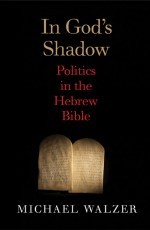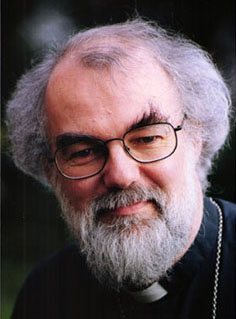
That the resurrection is a beleaguered doctrine in North America and in Europe is hardly a new revelation. For all its technological wonders, modernity is uncomfortable with old-fashioned miracles. Pre-modern ways of talking about Jesus’ resurrection don’t translate easily for an audience that demands scientific corroboration and empirical evidence. As a result, Christianity has chastened and tamed this story in a number of ways.

[The the first of three posts this week on Michael Walzer’s “In God’s Shadow: Politics in the Hebrew Bible.”] Michael Walzer occupies a distinctive place in political interpretation. He is a distinguished political scientist who continues to have a significant investment in the Hebrew Bible. His writing thus permits a convergence of the agility of his Jewish perspective on the Bible and his engagement with contemporary questions of power. He has authored an important book on the Exodus narrative and the continuing influence of that narrative upon revolutionary thought and action. His paper, “The Prophets as Social Critics,” moreover, recognized the prophets of ancient Israel as serious social critics and analysts who exposited Israel’s “core values” of justice and righteousness and who were alert to oppressions that impeded social solidarity…
With conservative and evangelical ethicists falling dramatically off the anti-gay-marriage bandwagon at a remarkable pace, superstar theologian David Bentley Hart’s essay “Is, Ought, and Nature’s Laws” last month in First Things came like a spark on a dry pile of tinder. Challenging the optimism of many contemporary Catholic thinkers (and recently many evangelical thinkers as well) that natural law arguments can provide a convincing, broadly-appealing basis for opposition to gay marriage legislation, Hart provoked a tide of responses and counter-responses in the blogosphere, which continues even now. For at stake in Hart’s remarks were not merely how conservatives should and shouldn’t engage in gay marriage debates, but the nature of the public square and of natural law itself, the foundation upon which so much Christian political theory has been built over the centuries.
Rather than attempting to weigh in with yet another contribution to the wide-ranging debate, I will merely seek to provide here something of an annotated catalogue of the more significant blasts and counter-blasts
In this column, I want to engage in what Reynolds Price once referred to as “a serious way of wondering” about Exodus 20: 15-18—i.e., the moment at which the Israelites experience the divine self-revelation at the foot of Mount Sinai. Normally, this passage is understood as a theophanic event. To the extent that it involves the constitution of a nation or polity, it has usually been understood as a theocracy. Its intellectual expression (insofar as it addresses the issue of covenantal authority grounded in divine self-revelation) would therefore take the form of a political theology. To the extent that we read the above passage in this way, we have already rendered a decision—the essential significance of the passage would lie in the divine self-revelation. The fear which the Israelites experienced would amount simply and solely to a fear of God. Conversely, an acceptance of the commandments would amount to an acceptance of the political theology undergirding the theocracy.

Sometimes it makes sense to concentrate on a single concept in order to understand the contribution of an individual to the history of ideas. This may mean artificially reducing the complexity of a person’s thought and vision. It may, however, be helpful in finding a hermeneutic ‘entry door’ into those thoughts and visions.
I have come to the (preliminary) conclusion that “Decentering” is such a key concept in the writing of Rowan Williams. “Decentering” features in Williams’ work both on questions of individual spirituality and matters of collective well-being. In Williams’ approach the individual and collective dimensions are not to be viewed separately but together. Individual choices bear upon the order of state and society and collective decisions provide the framework for the welfare of individuals and their ‘pursuit of happiness’.
